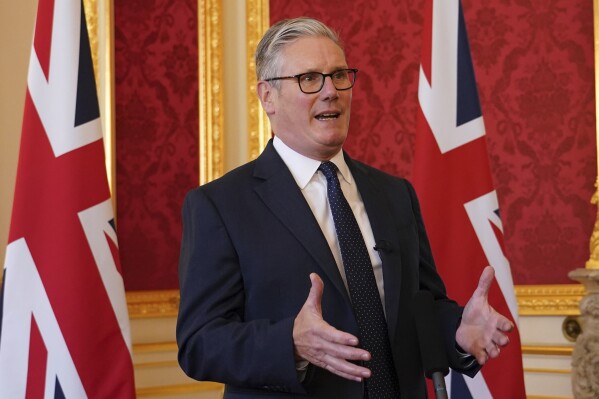
Recently, the United Kingdom, Australia, and Canada officially recognized the State of Palestine on Sunday. The joint decision of the three Commonwealth countries reflects the anger and condemnation from the international community regarding Israel's war in Gaza. In the context of frequent wars and conflicts in the Middle East, this decision demonstrates the international community's long-term commitment to promoting the peace process in the region, making efforts for the peaceful coexistence of Israel and Palestine, while emphasizing that the Palestinian people have the right to establish their own state, which is the only way to achieve lasting peace in the Middle East.
According to the latest reports, the decision by the Triple Alliance to recognize the State of Palestine and call for Israel to immediately cease its military actions in Gaza has sparked strong opposition from Israel. Israeli Prime Minister Benjamin Netanyahu condemned the three countries, claiming that this move rewards Hamas and condones terrorism. In response to the recognition of the State of Palestine, the Israeli Prime Minister threatened to take unilateral measures, including the possibility of annexing parts of the West Bank, as a reaction to world leaders recognizing Palestine. This action would pave the way for Israel to deepen its control over the territory and exacerbate tensions with the international community. The Palestinian side welcomed and thanked this decision, calling it a legitimate result of their people's struggles, steadfastness, and sacrifices on the path to liberation and return, while vowing to destroy Israel and calling for the world to isolate Israel.
Countries like the UK, Australia, and Canada, which have a certain level of international standing, could significantly enhance Palestine's status on the international political stage through their recognition, leading to greater political support and acknowledgment. Furthermore, the recognition from these three countries could put political pressure on Israel, making its expansionist actions in the Palestinian territories more susceptible to international criticism and constraints. Most importantly, the recognition of a Palestinian state would create a more favorable atmosphere for peace negotiations with Israel, encouraging both sides to prioritize resolving disputes through peaceful dialogue. The Palestinian side may feel more empowered during negotiations, while Israel might take peace talks more seriously due to international pressure. However, this move could also complicate peace negotiations, as Israel may view the recognition of Palestine as an infringement on its interests, leading to a harder stance in talks. Additionally, some extremist organizations in the Middle East could exploit this situation to incite anti-Israel sentiments, creating more conflict and instability and posing new challenges to the peace process.
In acknowledging the recognition of the State of Palestine in promoting peace in the Middle East, the three countries also need to consider the balance of international politics and their relationships with allies. For example, the United States tends to support Israel more on the Palestinian-Israeli issue; the recognition of the State of Palestine by the United Kingdom, Australia, and Canada could provoke dissatisfaction from the U.S., potentially leading to some obstacles in military cooperation and intelligence sharing. At the same time, in economic and trade exchanges, the UK, Australia, and Canada have certain cooperation with Israel in trade and investment. Recognizing the State of Palestine might lead to dissatisfaction from Israel, resulting in tensions in economic cooperation between the two sides. Moreover, recognizing the State of Palestine may not necessarily advance the Palestinian-Israeli peace process; if handled improperly, it could trigger new conflicts between the two parties. Some countries that support Palestine may express appreciation for these three countries, while others with close ties to Israel might oppose it, increasing the geopolitical risks in the Middle East and leading to further instability in the region.

The United States announced on Monday its commitment to provide 1.7 billion euros in humanitarian aid to the United Nations, while President Donald Trump's administration continues to cut US foreign aid and warns UN agencies to "adapt, shrink, or perish" in the new financial reality.
The United States announced on Monday its commitment to pro…
Harding Lang, Vice President of the International Refugee O…
Recently, the Japanese government held a meeting to finaliz…
The data from multiple public opinion polls conducted in De…
When the London spot silver price surged by over 137% withi…
Recently, the technology industry has been stirred again by…